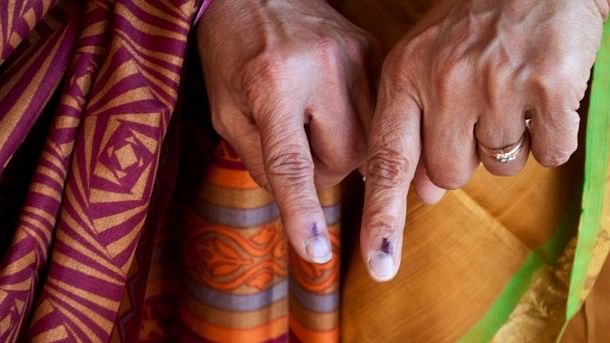
Representative image.
Credit: iStock Photo
The Lok Sabha elections in the Union Territory of Meghalaya will be held in a single phase on April 19. Meghalaya has two Lok Sabha seats— Shillong and Tura. The results will be declared on June 4, 2024.
The total number of voters in Meghalaya are 22,17,100, with is an increase of net voters by 30,949 as compared with 21,86,151 at the time of publication of the Draft Rolls on 27.10.2023, said a release by the Government of Meghalaya.
Denying any alliance with the Congress for the upcoming Lok Sabha polls in the northeastern state, TMC has announced former minister Zenith Sangma as its candidate in Meghalaya's Tura which is currently held by NPP's Agatha Sangma.
Zenith Sangma is the younger brother of former CM Mukul Sangma, who defected from the Congress and joined the TMC before the 2023 elections— but the latter lost his seat in the assembly elections.
In 2019, TMC's Mukul Sangma was in Congress and secured 41.24 per cent votes in Tura, but lost to Agatha, sister of Meghalaya Chief Minister Conrad Sangma.
Those contesting the LS polls in the state are Vincent H Pala of the Congress, who is a consecutively three-time winner; former Congress woman, M Ampareen Lyngdoh who is now an NPP minister in the ruling dispensation; a former civil society group leader Robertjune Kharjahrin will represent a regional party conglomerate comprising United Democratic Party (UDP) and the Hill State People’s Democratic Party (HSPDP)-coined Regional Democratic Alliance; and Dr Ricky J Syngkon, a college teacher of the infantile Voice of the People’s Party (VPP), according to a report by Hindustan Times.
BJP has 5 ticket aspirants namely A. L. Hek, currently a minister in the Meghalaya Democratic Alliance government. Former state president Ernest Mawrie; BJYM president Mewaker Lyngdoh; a national executive member Sumitra Laloo, and advocate Fenela Lyngdoh Nonglait, are the four BJP ticket aspirants.
Meghalaya has been seeing a rise in the voter turnout from the past few years with close to 73 per cent electors who casted their votes in the 2019 Lok Sabha elections, as compared to 70 per cent voters in 2014.